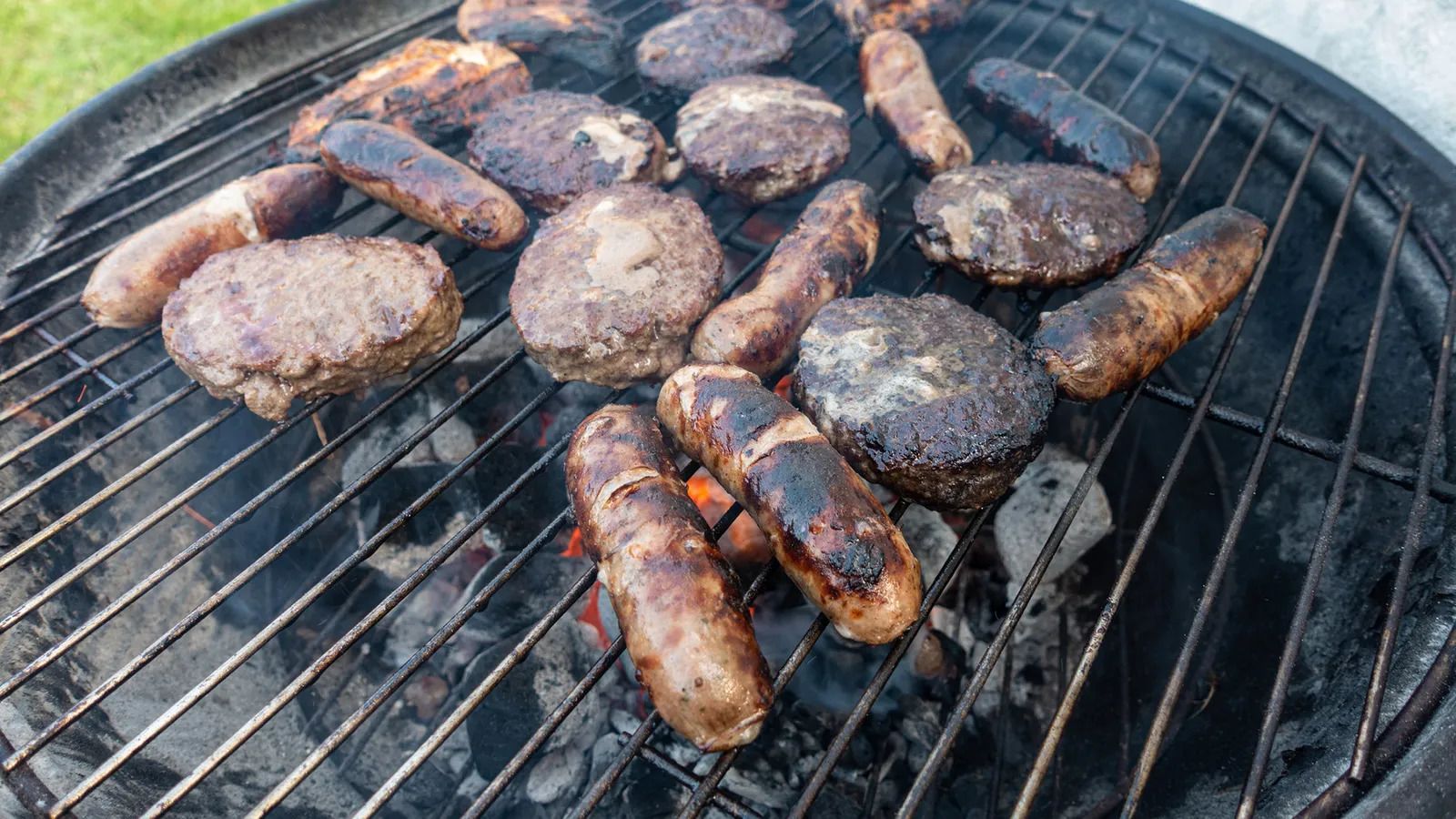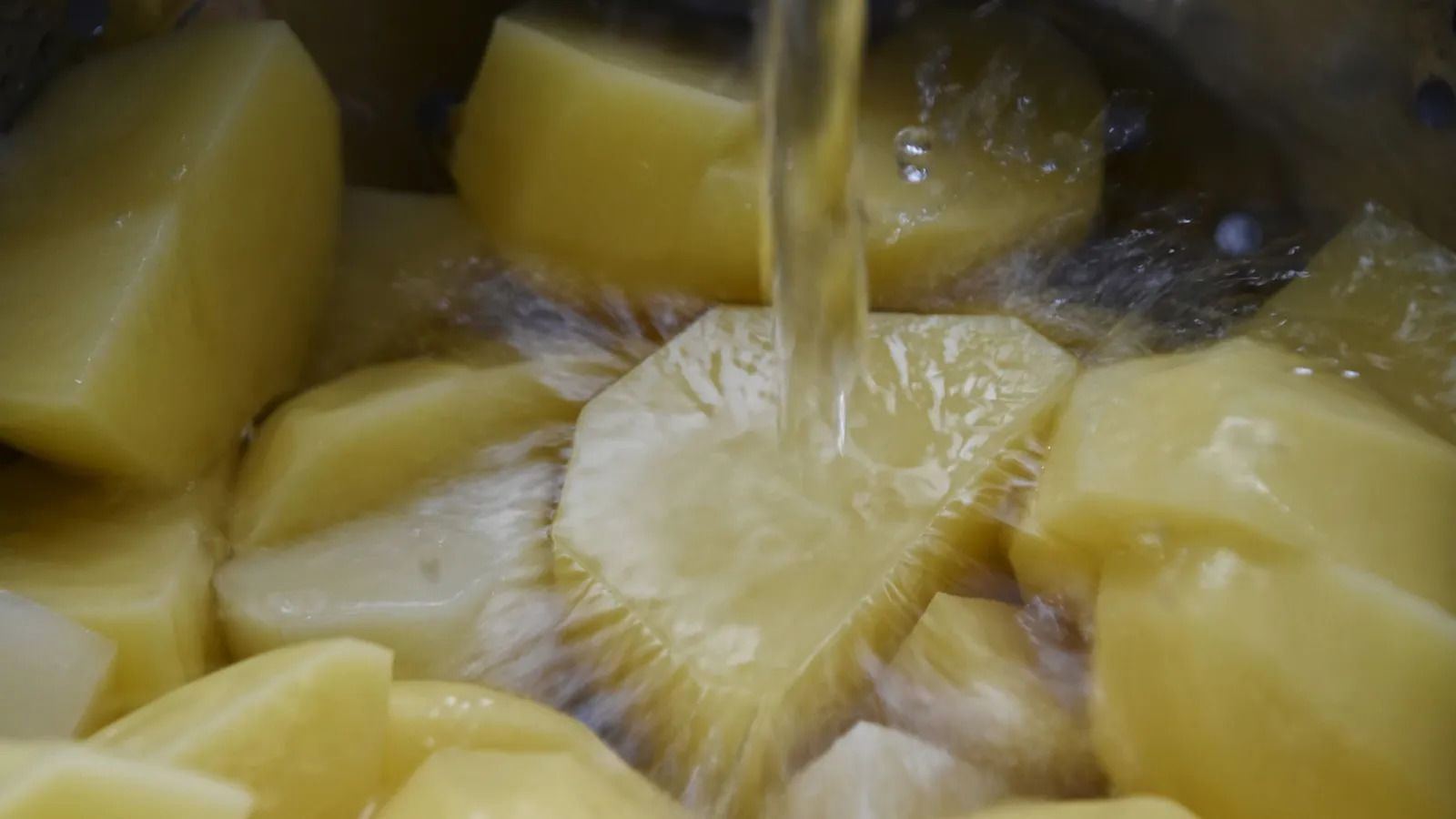
Should you avoid eating burnt food?
It's more than likely you still have some of the habits around eating and cooking that you learned from adults when you were young, maybe without even realising. Perhaps you never lick food off your knife, or you always throw salt over your shoulder to ward off evil spirits.
Many of these quirks are probably nothing more than superstition, but one in particular may have been unknowingly prescient a few decades ago, and grounded in a scientific discovery that was yet to happen.
In 2002, scientists at the University of Stockholm discovered that it might actually be wise to scrape the burnt bits off your toast. They found that a substance called acrylamide forms when we apply heat over 120C (248F) to certain foods – including potato, bread, biscuits, cereal, and coffee – and its sugar content reacts with the amino acid asparagine.
This process is called the Maillard reaction, and it causes food to brown and gives it that distinctive flavour. But scientists have found that doses of acrylamide is carcinogenic in animals, but only in doses much highter than those in human food.
 The learned response to remove burned patches from food might have some long-term health benefits
The learned response to remove burned patches from food might have some long-term health benefits
Acrylamide could also increase the risk of humans developing cancer, especially children, according to the European Food Safety Authority. But researchers looking into the effects on humans have not yet been able to come to a definite conclusion.
"After almost 30 years of its classification as a 'probable human carcinogen', there is still inconsistent evidence of its definite carcinogenicity in humans. However, if we continue to do further studies on humans, we might have adequate data to change acrylamide's classification to a human carcinogen," says Fatima Saleh, associate professor of medical laboratory sciences at Beirut Arab University in Lebanon.
Scientists are sure, however, that acrylamide is neurotoxic to humans, which means it can affect the nervous system. The exact cause for this are still not fully understood, but among the theories are that acrylamide attacks structural proteins within nerve cells or may inhibit anti-inflammatory systems that protect nerve cells from damage.
The toxic effects of acrylamide have been shown to be cumulative, which means that consuming a small amount of acrylamide over a long period of time could increase the risk of it affecting organs in the longer term.
More specifically, evidence from animal studies suggests that long-term exposure to dietary acrylamide could also increase the risk of neurodegenerative disease, such as dementia, and may be associated with neurodevelopmental disorders in children, says Federica Laguzzi, assistant professor of cardiovascular and nutritional epidemiology at the Institute of Environmental Medicine at Karolinska Institutet in Sweden.
"Acrylamide passes through all tissue, including the placenta, because it has a low molecular weight and is soluble in water," says Laguzzi, who has found a link between higher acrylamide intake in pregnant people and the lower birth weight, head circumference and length of their newborn babies.
The potential mechanism behind acrylamide's role in increasing the risk of cancer in humans isn't yet known. Leo Schouten, an associate professor of epidemiology at Maastricht University in the Netherlands, has a theory why it might happen.
After the 2002 discovery of the presence of acrylamide in our food by Swedish researchers, the Dutch Food Authority contacted investigators of the Netherlands Cohort Study on Diet and Cancer, including Schouten, to investigate whether dietary acrylamide was a risk for humans. Schouten and colleagues tried to capture an estimate of how much acrylamide people were consuming based on a questionnaire.
The mechanism behind acrylamide's potential cancer-causing effect could be related to hormones
They discovered that the variation between people with low and high exposure in an elderly Dutch population could be explained mainly by one product popular in the Netherlands called ontbijtkoek, roughly translated as "breakfast cake", which was extremely high in acrylamide due to the use of baking soda in the production.
They investigated the link between non-smokers' acrylamide intake (as smoking also contains the substance) and all cancers, and found a higher risk of endometrial and ovarian cancers in women with high exposure to acrylamide. They have also found, in further studies, a slight link between acrylamide intake and kidney cancer.
However, these findings are yet to be confirmed by any other researchers. The closest is a US population study, which published findings in 2012 suggesting an increased risk of ovarian and endometrial cancer among non-smoking post-menopausal women who consumed high amounts of acrylamide. Of course, there could be other reasons for this – people who eat high levels of acrylamide might also follow other lifestyle choices that put them at a higher risk.
Other studies haven't found an association, or saw weaker associations. But it's unclear whether the association Schouten and his team found was incorrect, or if other studies weren't able to measure acrylamide intake accurately.
The mechanism behind acrylamide's potential cancer-causing effect could be related to hormones, Schouten says, because certain hormones have been associated with an increased risk of cancer, especially female genital cancers like endometrial and ovarian cancer.
 Simply placing potatoes in water for 10 minutes can massively reduce the amount of acrylamide produced when the food is cooked
Simply placing potatoes in water for 10 minutes can massively reduce the amount of acrylamide produced when the food is cooked
"Acrylamide may affect oestrogen or progesterone, which would explain the female cancers, but this hasn't been proven," says Schouten.
Laboratory studies involving rats have also found links between acrylamide intake and cancer in mammary glands, thyroid gland, testes and the uterus, which also suggest a hormonal pathway, but this does not automatically mean a similar risk to humans.
In 2010, the Joint Food and Agriculture Organization/World Health Organization Expert Committee on Food Additives suggested that more long-term studies are needed to further understand the link between acrylamide and cancer. It did, however, support efforts to reduce acrylamide levels in food.
But one of the biggest challenges is accurately measuring how much acrylamide we consume.
"It's well established that acrylamide is genotoxic and can cause cancer in animals, but the association between acrylamide and cancer in humans is still unclear," says Laguzzi. "Most epidemiological studies are performed with acrylamide intake measured through dietary questionnaires that rely on people's reporting, which can bias the results."
While Schouten believes he was able to accurately measure acrylamide in people's diets, not everyone agreed, including many toxicologists. Another way to measure acrylamide intake is by measuring biomarkers in urine and blood, but this hasn't found anything concrete, either, Schouten says.
We could have protective measures that limit the increased risks associated with our overdone chips
It's important to do more research where acrylamide is measured with biomarkers, especially through blood, as this shows acrylamide intake over a longer period of time than urine, says Laguzzi.
Acrylamide has been measured through biomarkers in US studies, but only very recently. One study from 2022, using data spanning a decade, shows a link between acrylamide intake and deaths from cancer, but it couldn't conclude which cancers.
One reason there may not be much conclusive evidence that the levels of acrylamide in our diets can increase the risk of cancer is because we could have protective measures that limit the increased risks associated with our overdone chips.
Laguzzi has found no link between non-gynaecological cancer risk and acrylamide intake in her research summarising the population evidence of this association. She says this could be because either humans have good reparative mechanisms to help prevent both potential carcinogenic and neurotoxic effects, or because these studies were performed using inaccurate measures of dietary acrylamide exposure.
 More long-term studies are needed to find the link between burned foods and cancers
More long-term studies are needed to find the link between burned foods and cancers
"Also, we don't just eat acrylamide on its own. It's in food, where there could also be other components, like antioxidants, that can help prevent the toxic mechanisms," she says.
Despite the absence of solid research showing the risks to humans of eating acrylamide, the food industry is taking measures to reduce it in our foods.
"The EU is in the process of setting maximum allowable levels for acrylamide in food, and that could have serious repercussions for the food supply chain," says Nigel Halford, whose research is helping farmers to reduce the potential for acrylamide formation in products made from wheat.
While acrylamide isn't found in plants, asparagine, which is the substance that turns into acrylamide when heated, is.
"Acrylamide affects quite a wide range of foods that come from cereal grains, so it's quite big deal for the food industry," he says.
When making chips, for example, soaking cut potatoes in hot water for 10 minutes can reduce their acrylamide formation by almost 90%
Wheat grain accumulates much more asparagine than necessary, and it seems to accumulate more when it doesn't get all the nutrients it needs, Halford says, particularly sulphur. Halford is trying to stop this processes genetically, using the gene editing technique Crispr.
At the other end of the supply chain, many producers have been urged to reduce the acrylamide content of their products where possible, especially in baby food.
This has been quite successful, says Schouten, who is pleased that the Dutch breakfast cake ontbijtkoek has around 20% of the acrylamide it used to have, by changing how it's produced.
There are also ways to reduce acrylamide at home when cooking, says Saleh. She advises that, when making chips, for example, soaking cut potatoes in hot water for 10 minutes can reduce their acrylamide formation by almost 90%.
The scientific interest toward acrylamide health risk has grown again in the recent years, says Laguzzi. It will be a long process, but within a few years, any link between acrylamide intake and cancer risk will hopefully be clearer, she says. In the meantime, that habit of scraping the burnt bits off your toast might not be such a bad idea.










